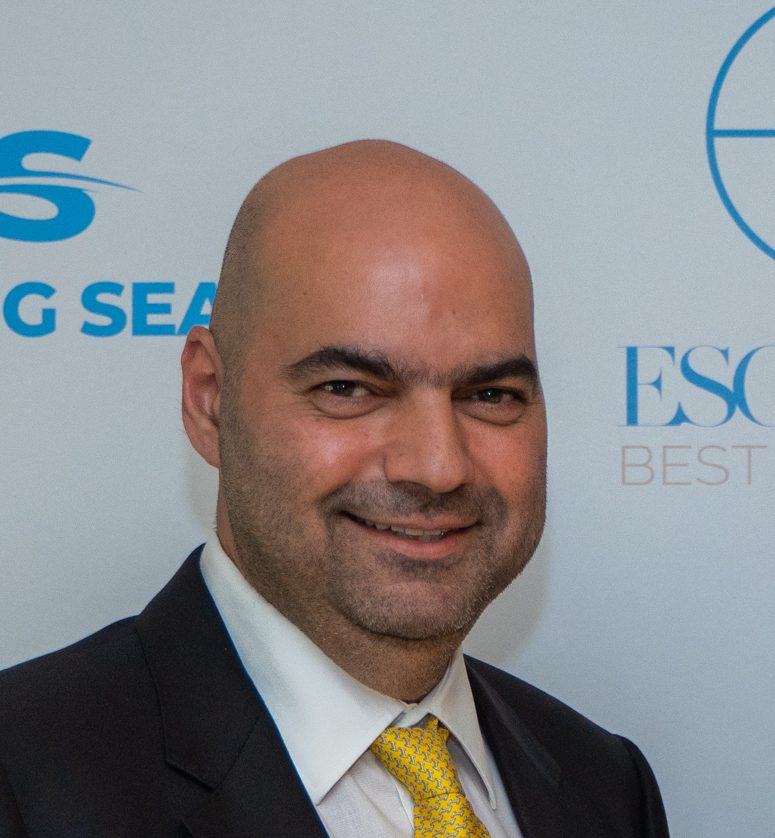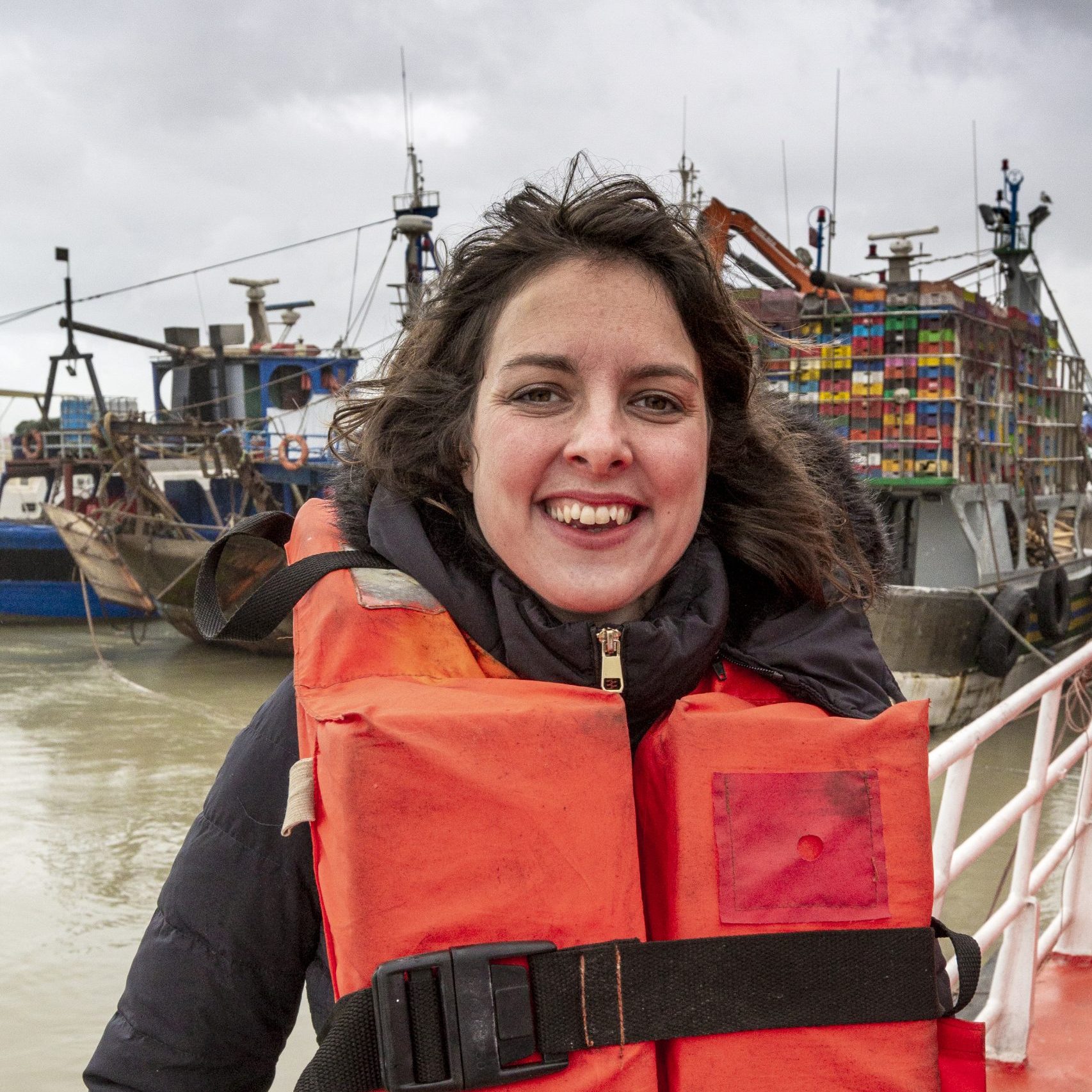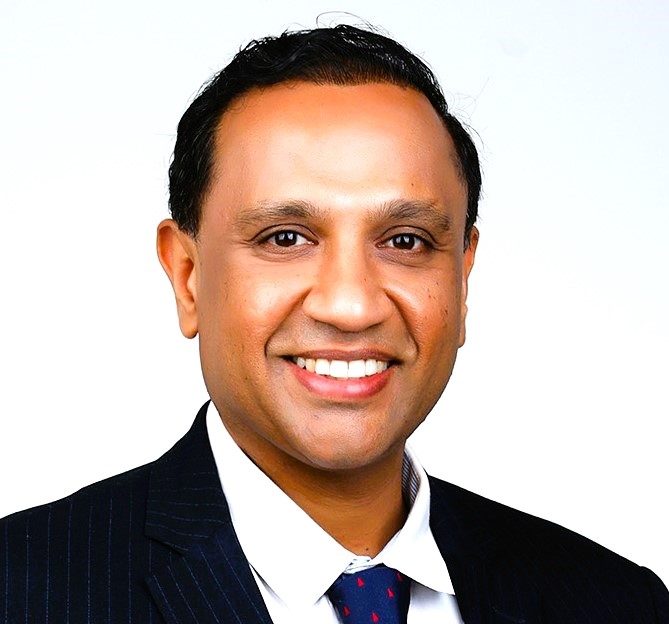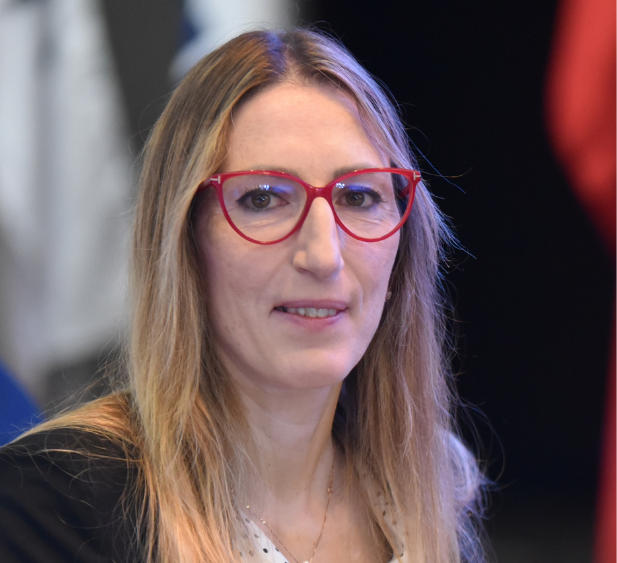The theme of 2024’s World Mental Health Day, set by the World Federation for Mental Health, is “Mental Health at Work”
Unhealthy workplace conditions, such as stigma, discrimination, and exposure to harassment and other adverse environments, can significantly jeopardize mental well-being, impacting quality of life and overall productivity. With 60% of the global population engaged in the workforce, immediate action is necessary to mitigate mental health risks and to safeguard and enhance mental health in the workplace. In light of this year’s World Mental Health Day, we have invited industry experts to share their insights on the following question:
What initiatives would you suggest to improve mental health and wellbeing for seafarers in their workplace?
SAFETY4SEA would like to express gratitude to all maritime experts who participated in our special column. We appreciate their valuable feedback and commitment to raising awareness towards the important topic of mental health.
Read their key messages in alphabetical order:
Dr Maria Ali, MHSc DCPsych Chartered Psychologist, Clinical Psychotherapist, OneCare Group
 Isolation is a vicious cycle – seafarers are isolated from family, and may be prevented from forming close collegial relationships because of contract changes. Potential cultural and social differences may present challenges, as well as further impose a sense of isolation. Isolation is a significant contributor of mental health issues, and a person struggling with an issue will isolate further because of the associated shame. Therefore, any measure that tackles isolation will improve mental health. Other than social activities onboard, more formal set-ups include mentoring programmes. By sharing with a mentor the seafarer has the opportunity to have their experience validated, and feel less alone when they realise there is support. Psychoeducation on mental health issues is also effective, because its purpose is two-fold. Firstly, it informs seafarers about what changes they should look out, but more importantly, it is leading to a culture shift. It destigmatises mental health issues and makes it easier to talk, be it to ask for help for themselves, or to approach someone who they think is struggling.
Isolation is a vicious cycle – seafarers are isolated from family, and may be prevented from forming close collegial relationships because of contract changes. Potential cultural and social differences may present challenges, as well as further impose a sense of isolation. Isolation is a significant contributor of mental health issues, and a person struggling with an issue will isolate further because of the associated shame. Therefore, any measure that tackles isolation will improve mental health. Other than social activities onboard, more formal set-ups include mentoring programmes. By sharing with a mentor the seafarer has the opportunity to have their experience validated, and feel less alone when they realise there is support. Psychoeducation on mental health issues is also effective, because its purpose is two-fold. Firstly, it informs seafarers about what changes they should look out, but more importantly, it is leading to a culture shift. It destigmatises mental health issues and makes it easier to talk, be it to ask for help for themselves, or to approach someone who they think is struggling.
Capt. Akshat Arora, Senior Risk Assessor, Thomas Miller, Managers of UK P&I Club
 To improve the mental health and wellbeing of seafarers, it is essential to foster a safe, inclusive and supportive environment – one that promotes diversity and enforces a zero-tolerance policy against bullying and harassment so that the crew feel respected and protected. Good living conditions, fair and timely salaries, career progression and flexible contracts tailored to individual needs help reduce stress and boost crew morale. Internet connectivity allows them to stay in touch with loved ones, easing feelings of isolation. Wellness programmes, including physical activities and relaxation techniques, can prevent burnout, while mentorship can build a sense of community. The UK P&I Club has collaborated with various organisations to ensure a wide variety of physical and mental health support resources are accessible. Our supported initiatives, such as the Mission to Seafarers WeCare programme, help in raising awareness, destigmatise mental health issues, and offer practical resources for those in need. Access to 24/7 helplines and counselling services, like the Sailors’ Society’s Crisis Response Network, ensures seafarers can seek support whenever needed.
To improve the mental health and wellbeing of seafarers, it is essential to foster a safe, inclusive and supportive environment – one that promotes diversity and enforces a zero-tolerance policy against bullying and harassment so that the crew feel respected and protected. Good living conditions, fair and timely salaries, career progression and flexible contracts tailored to individual needs help reduce stress and boost crew morale. Internet connectivity allows them to stay in touch with loved ones, easing feelings of isolation. Wellness programmes, including physical activities and relaxation techniques, can prevent burnout, while mentorship can build a sense of community. The UK P&I Club has collaborated with various organisations to ensure a wide variety of physical and mental health support resources are accessible. Our supported initiatives, such as the Mission to Seafarers WeCare programme, help in raising awareness, destigmatise mental health issues, and offer practical resources for those in need. Access to 24/7 helplines and counselling services, like the Sailors’ Society’s Crisis Response Network, ensures seafarers can seek support whenever needed.
Dr. Walther Boon, Medical Doctor and Managing Director MedAssist.online
 There is no simple one-fits-all solution. Most seafarers love their job and the sea. But all of them, men and women, want to be heard. Like anyone else, they need to be appreciated and respected for the work they do. They need genuine interest in their work. And care and attention from fellow humans. How you achieve this will vary greatly by culture, location and other factors. There’s not one ‘standard’ seafarer, there are almost two million of them. Many initiatives for your ships and crews you can perfectly come up with yourself. But most importantly: keep any initiatives going 365 days per year. Treat them like you would want to be treated yourself. Seafarers are one family when out at sea. Treat them like family – your family. Because they are.
There is no simple one-fits-all solution. Most seafarers love their job and the sea. But all of them, men and women, want to be heard. Like anyone else, they need to be appreciated and respected for the work they do. They need genuine interest in their work. And care and attention from fellow humans. How you achieve this will vary greatly by culture, location and other factors. There’s not one ‘standard’ seafarer, there are almost two million of them. Many initiatives for your ships and crews you can perfectly come up with yourself. But most importantly: keep any initiatives going 365 days per year. Treat them like you would want to be treated yourself. Seafarers are one family when out at sea. Treat them like family – your family. Because they are.
Capt. Ayse Asli BASAK , Co-Founder & CEO, Shipsider
 As someone who has sailed the seven seas and now leads a maritime startup focused on sustainable innovation, I’ve seen firsthand the importance of supporting seafarers’ mental health. One key initiative is to strengthen digital communication tools, helping seafarers stay connected with their families and reduce the sense of isolation they experience. Providing mental health training to onboard crews is another essential step, allowing them to recognize and respond to early signs of stress or anxiety. Additionally, promoting shore leave policies that prioritize rest and recovery ensures that seafarers return to work refreshed. By focusing on these areas, we can create a more supportive and compassionate environment at sea.
As someone who has sailed the seven seas and now leads a maritime startup focused on sustainable innovation, I’ve seen firsthand the importance of supporting seafarers’ mental health. One key initiative is to strengthen digital communication tools, helping seafarers stay connected with their families and reduce the sense of isolation they experience. Providing mental health training to onboard crews is another essential step, allowing them to recognize and respond to early signs of stress or anxiety. Additionally, promoting shore leave policies that prioritize rest and recovery ensures that seafarers return to work refreshed. By focusing on these areas, we can create a more supportive and compassionate environment at sea.
Elisabeth Calbari (MISCP), Neuropsychologist | Neuroleadership Executive Consultant | Founder of Self Balance
 Mental health is the anchor that ensures seafarers navigate safely and thrive at sea. Neuroscience tells us that chronic stress weakens decision-making and focus, but we can change that. By introducing self-awareness workshops early, we empower future seafarers with the skills to manage stress, understand their emotions, and build resilience. This isn’t just about surviving tough days—it is about thriving through becoming more self-aware. Mental health is the foundation of a true professional, one who knows how to protect, observe, and take care of themselves and their teams. By investing in seafarers’ mental health, we enhance not only their personal well-being but also the overall safety and efficiency of maritime operations—making mental health as essential as any other navigational tool on board.
Mental health is the anchor that ensures seafarers navigate safely and thrive at sea. Neuroscience tells us that chronic stress weakens decision-making and focus, but we can change that. By introducing self-awareness workshops early, we empower future seafarers with the skills to manage stress, understand their emotions, and build resilience. This isn’t just about surviving tough days—it is about thriving through becoming more self-aware. Mental health is the foundation of a true professional, one who knows how to protect, observe, and take care of themselves and their teams. By investing in seafarers’ mental health, we enhance not only their personal well-being but also the overall safety and efficiency of maritime operations—making mental health as essential as any other navigational tool on board.
Agapitos Diakogiannis, CEO, Seafair
 The following can help improve the mental health and wellbeing of seafarers onboard:
The following can help improve the mental health and wellbeing of seafarers onboard:
- Establishing better communication channels with family and friends, such as subsidized wifi access (eg Starlink), can reduce feelings of isolation; some wrongly assume that wifi onboard may reduce productivity of seafarers
- Regular access to counseling services via telehealth, to provide critical emotional support. Offering mental health training for officers can also help build awareness and foster a supportive environment on board
- Introducing fitness programs and onboard activities to encourage physical well-being is equally essential, as this often positively impacts mental health
- Regular rotations and shore leave are crucial to combat burnout and fatigue, helping seafarers recharge mentally
These combined efforts would create a more supportive, balanced environment for seafarers, improving their mental resilience and overall workplace satisfaction.
Jingle Marie M. Fajardo, RMT, MD, Medical Repatriation and Offsite Head, Health Metrics, Inc
 We understand that our global maritime professionals face unique challenges—long periods away from loved ones, isolation, and demanding conditions. Supporting their mental and physical well-being is essential to help them feel cared for onboard. For their mental well-being, staying connected with loved ones through reliable internet access can ease loneliness. Social media, if used wisely, can promote positivity and healthy work attitudes, though it may contribute to depression if not managed carefully. Kumustahan sessions (from kumusta, meaning “how are you?”) offer safe spaces for conversations, while team-building activities foster camaraderie among crew. Mental health training and having a mental health worker onboard provide valuable support for managing stress. Equally important is their physical well-being. Studies show that lifestyle adjustments, such as balanced diets and regular exercise, improve mental health. Encouraging fitness challenges and managing workplace stress through balanced workloads creates a more positive environment. By focusing on both mind and body, we create a healthier, uplifting workplace for our seafarers.
We understand that our global maritime professionals face unique challenges—long periods away from loved ones, isolation, and demanding conditions. Supporting their mental and physical well-being is essential to help them feel cared for onboard. For their mental well-being, staying connected with loved ones through reliable internet access can ease loneliness. Social media, if used wisely, can promote positivity and healthy work attitudes, though it may contribute to depression if not managed carefully. Kumustahan sessions (from kumusta, meaning “how are you?”) offer safe spaces for conversations, while team-building activities foster camaraderie among crew. Mental health training and having a mental health worker onboard provide valuable support for managing stress. Equally important is their physical well-being. Studies show that lifestyle adjustments, such as balanced diets and regular exercise, improve mental health. Encouraging fitness challenges and managing workplace stress through balanced workloads creates a more positive environment. By focusing on both mind and body, we create a healthier, uplifting workplace for our seafarers.
Yofis Florentin, Founder/CEO, Learning Seaman
 To improve mental health and well-being for seafarers, we need proactive initiatives that address both individual needs and workplace culture. Raising awareness and providing regular training on mental health can help break the stigma and equip seafarers to recognize early signs of stress. Access to mental health resources is also vital, and platforms like Learning Seaman offer continuous support, providing tools for managing stress, isolation, insomnia and overall well-being. Establishing healthy work-life balance at sea, with reasonable work hours and sufficient downtime, can greatly reduce stress and improve mental resilience. Encouraging peer support systems onboard can foster a stronger sense of community and provide much-needed emotional backing. Through our collaboration with Rightship’s Zero Harm Innovation Partnership, Learning Seaman is committed to offering solutions that prioritize mental health and create safer, more supportive environments for all seafarers.
To improve mental health and well-being for seafarers, we need proactive initiatives that address both individual needs and workplace culture. Raising awareness and providing regular training on mental health can help break the stigma and equip seafarers to recognize early signs of stress. Access to mental health resources is also vital, and platforms like Learning Seaman offer continuous support, providing tools for managing stress, isolation, insomnia and overall well-being. Establishing healthy work-life balance at sea, with reasonable work hours and sufficient downtime, can greatly reduce stress and improve mental resilience. Encouraging peer support systems onboard can foster a stronger sense of community and provide much-needed emotional backing. Through our collaboration with Rightship’s Zero Harm Innovation Partnership, Learning Seaman is committed to offering solutions that prioritize mental health and create safer, more supportive environments for all seafarers.
Rob Gale, Head of Training, IMEC
 It is great to see across industry that awareness to tackle mental wellbeing is growing and I am encouraged by the many steps that IMEC Members are increasingly taking to support our seafarers in this area. Here are a few thoughts that I feel could improve health and wellbeing further. I think first of all the biggest area of improvement would be as part of any medical support package that seafarers currently are entitled to, mental wellbeing checks and available support through live 24/7 services to trained psychologists would if not already provided make a big difference. If not already undertaken, further vessel and organisational surveys and anonymous data gathering from seafarers would provide greater insights into areas that individual companies could improve on, ensuring that everyone has a voice I think would go along way to feeling valued greater in this industry and allow for further actions to be taken.
It is great to see across industry that awareness to tackle mental wellbeing is growing and I am encouraged by the many steps that IMEC Members are increasingly taking to support our seafarers in this area. Here are a few thoughts that I feel could improve health and wellbeing further. I think first of all the biggest area of improvement would be as part of any medical support package that seafarers currently are entitled to, mental wellbeing checks and available support through live 24/7 services to trained psychologists would if not already provided make a big difference. If not already undertaken, further vessel and organisational surveys and anonymous data gathering from seafarers would provide greater insights into areas that individual companies could improve on, ensuring that everyone has a voice I think would go along way to feeling valued greater in this industry and allow for further actions to be taken.
Capt. Pol Winston G. Haboc, Head of the Philippine Center for Advanced Maritime Simulation and Training, Inc. (PHILCAMSAT)
 PHILCAMSAT recognizes the immense stress and fatigue seafarers face while at sea. In response, we introduced the BRIDGE program (Building Resiliency in Diverse Global Environments) in 2019, a proactive initiative designed to safeguard the mental health and well-being of our global maritime professionals (GMPs). The BRIDGE program was especially impactful during the COVID-19 pandemic, providing critical support to seafarers as travel restrictions made life even more challenging. It offered them a sense of recognition and support, while also providing mental health awareness, training, and regular well-being monitoring.In collaboration with Synergy Marine Group, PHILCAMSAT also offers the WeTeam helpline, a free 24/7 counseling service that connects seafarers to certified professionals. Accessible via Viber or WhatsApp, and available in Filipino, English, and Indian languages, it offers confidential support whenever needed. We continue to promote this platform to ensure that the mental health and welfare of our GMPs remain a top priority as they navigate the seas for extended periods.
PHILCAMSAT recognizes the immense stress and fatigue seafarers face while at sea. In response, we introduced the BRIDGE program (Building Resiliency in Diverse Global Environments) in 2019, a proactive initiative designed to safeguard the mental health and well-being of our global maritime professionals (GMPs). The BRIDGE program was especially impactful during the COVID-19 pandemic, providing critical support to seafarers as travel restrictions made life even more challenging. It offered them a sense of recognition and support, while also providing mental health awareness, training, and regular well-being monitoring.In collaboration with Synergy Marine Group, PHILCAMSAT also offers the WeTeam helpline, a free 24/7 counseling service that connects seafarers to certified professionals. Accessible via Viber or WhatsApp, and available in Filipino, English, and Indian languages, it offers confidential support whenever needed. We continue to promote this platform to ensure that the mental health and welfare of our GMPs remain a top priority as they navigate the seas for extended periods.
Martin Hedman, Director, Mental Wellness Practices, VIKAND
 The first step is to accept that improving the mental health of seafarers is an ongoing mission – not a problem we solve once and move on from. This requires a change in mindset. First, mental health must be a consistent agenda item in the boardroom, with management prepared to invest in proactive measures instead of always relying on reactive care. Prevention and early detection involve greater awareness training, ongoing assessments, and other steps to reduce the risk of mental and emotional health issues. These are top-down efforts, starting with a management team willing to invest, officers willing to lead and listen, and seafarers who are open to change and willing to better support one another. Better social engagement, stronger teams, elevated morale and other positive outcomes are more likely to emerge in an organisation with transformational leadership that has made the effort to change its mindset towards mental and emotional well-being.
The first step is to accept that improving the mental health of seafarers is an ongoing mission – not a problem we solve once and move on from. This requires a change in mindset. First, mental health must be a consistent agenda item in the boardroom, with management prepared to invest in proactive measures instead of always relying on reactive care. Prevention and early detection involve greater awareness training, ongoing assessments, and other steps to reduce the risk of mental and emotional health issues. These are top-down efforts, starting with a management team willing to invest, officers willing to lead and listen, and seafarers who are open to change and willing to better support one another. Better social engagement, stronger teams, elevated morale and other positive outcomes are more likely to emerge in an organisation with transformational leadership that has made the effort to change its mindset towards mental and emotional well-being.
Caroline Jupe, CEO, IMRF
 To improve mental health and wellbeing for those in the maritime search and rescue community, we need to build a culture of openness and support. The IMRF’s #SARyouOK? campaign emphasises the ‘Prepare, Normalise, Support’ approach, developed through extensive collaboration with the SAR community. This framework helps manage stress and trauma by preparing rescue personnel for the challenges they face, normalising conversations about mental health, and providing continuous support. It is crucial for maritime organisations to commit to creating a safe environment where mental health is prioritised, ensuring that SAR personnel know it’s okay to speak up if they’re struggling. This includes examining the organisational culture, ensuring good working conditions, having clear policies and procedures in place and budgeting for mental health support. Leaders must drive this cultural change by openly supporting mental wellbeing, as without their support, true progress cannot be achieved. Together, we can ensure that those who dedicate themselves to saving others are also well-supported in their own wellbeing.
To improve mental health and wellbeing for those in the maritime search and rescue community, we need to build a culture of openness and support. The IMRF’s #SARyouOK? campaign emphasises the ‘Prepare, Normalise, Support’ approach, developed through extensive collaboration with the SAR community. This framework helps manage stress and trauma by preparing rescue personnel for the challenges they face, normalising conversations about mental health, and providing continuous support. It is crucial for maritime organisations to commit to creating a safe environment where mental health is prioritised, ensuring that SAR personnel know it’s okay to speak up if they’re struggling. This includes examining the organisational culture, ensuring good working conditions, having clear policies and procedures in place and budgeting for mental health support. Leaders must drive this cultural change by openly supporting mental wellbeing, as without their support, true progress cannot be achieved. Together, we can ensure that those who dedicate themselves to saving others are also well-supported in their own wellbeing.
Kostas Katsoulieris, P&I Claims Director – Greece, NorthStandard
 Firstly and as physical and mental health are closely related, we should ensure that seafarers have the opportunities to be both fit (eg. through a gym on board, basketball court / hoops etc.) and well rested (eg. good mattresses, accommodation areas are suitable for proper rest etc.). Secondly that there is adequate internet access on board to ensure that seafarers can keep in regular contact with their families back home – of course with suitable policies and safeguards to ensure that crew members do not become victims of cybercrime or online bullying and of course dop not let this get in the way of their jobs. Thirdly studies have shown that social interaction on board is key to not only improving teamwork but also mental health and wellbeing – prime examples are quiz nights, basketball / ping pong tournaments, group exercises and yoga etc. Finally officers and senior ratings should be trained in mental health first aid to support their fellow crew members.
Firstly and as physical and mental health are closely related, we should ensure that seafarers have the opportunities to be both fit (eg. through a gym on board, basketball court / hoops etc.) and well rested (eg. good mattresses, accommodation areas are suitable for proper rest etc.). Secondly that there is adequate internet access on board to ensure that seafarers can keep in regular contact with their families back home – of course with suitable policies and safeguards to ensure that crew members do not become victims of cybercrime or online bullying and of course dop not let this get in the way of their jobs. Thirdly studies have shown that social interaction on board is key to not only improving teamwork but also mental health and wellbeing – prime examples are quiz nights, basketball / ping pong tournaments, group exercises and yoga etc. Finally officers and senior ratings should be trained in mental health first aid to support their fellow crew members.
Capt. Ankur Mittal, Marine Manager, d’ Amico Società di Navigazione S.p.A.
 To improve seafarers’ mental health and well-being, we recommend adopting a human-centric approach in company procedures and new ship designs, focusing on ease of work. Shore leave should be allowed at every port, giving seafarers the necessary break to recharge. Companies should provide confidential access to mental health professionals and have them randomly contact seafarers, breaking the stigma around seeking help. Regular mental health awareness programs and stress management training during safety briefings will encourage open dialogue. Enhancing internet connectivity and offering recreational facilities will help seafarers stay connected with family and unwind. These initiatives foster a supportive and proactive environment for better mental health at sea.
To improve seafarers’ mental health and well-being, we recommend adopting a human-centric approach in company procedures and new ship designs, focusing on ease of work. Shore leave should be allowed at every port, giving seafarers the necessary break to recharge. Companies should provide confidential access to mental health professionals and have them randomly contact seafarers, breaking the stigma around seeking help. Regular mental health awareness programs and stress management training during safety briefings will encourage open dialogue. Enhancing internet connectivity and offering recreational facilities will help seafarers stay connected with family and unwind. These initiatives foster a supportive and proactive environment for better mental health at sea.
Captain VS Parani, Vice President- Marine, Tufton Asset Management Ltd., Author- Golden Stripes- Leadership on the High Seas
 Surveys have shown that seafarers are likely to suffer from stress and depression much more than other working groups. Work environment-related reasons are long working hours, homesickness, poor sleep and poor facilities for accommodation, nutrition, recreation, communication and shore leave. Social reasons for mental health issues are feelings of social isolation, and poor support from senior management onboard and onshore- sometimes taken to the extremes of harassment, bullying and discrimination. We may not be able to resolve all work-related reasons as some are influenced by the ship’s trade and type, but we can solve for social reasons immediately. The solution- train our seafarers and office personnel in effective leadership skills. A ‘good morning’, a ‘thank you’, a ‘how are you’, effective listening, mentoring, teamwork meetings, career guidance, and empathising with a seafarer when he has professional or personal issues- all go a long way in improving well-being onboard.
Surveys have shown that seafarers are likely to suffer from stress and depression much more than other working groups. Work environment-related reasons are long working hours, homesickness, poor sleep and poor facilities for accommodation, nutrition, recreation, communication and shore leave. Social reasons for mental health issues are feelings of social isolation, and poor support from senior management onboard and onshore- sometimes taken to the extremes of harassment, bullying and discrimination. We may not be able to resolve all work-related reasons as some are influenced by the ship’s trade and type, but we can solve for social reasons immediately. The solution- train our seafarers and office personnel in effective leadership skills. A ‘good morning’, a ‘thank you’, a ‘how are you’, effective listening, mentoring, teamwork meetings, career guidance, and empathising with a seafarer when he has professional or personal issues- all go a long way in improving well-being onboard.
Professor Andy Smith, School of Psychology, Cardiff University
 Health is more than just the absence of disease; mental health is a prime example. It is essential to prevent and manage stress, anxiety and depression, but it is also vital to promote well-being. This is true in all sectors, but progress on these is often lacking in the maritime industry. The starting point must be education, and it is crucial to have relevant scientific research, policy documents, and readily available information for the seafarer. Auditing mental health is vital, and again, this can take several forms, such as medical examinations, self-reporting, and observation by trained colleagues, as occurs in mental health first-aider schemes. Being at sea creates problems in terms of who is the first-line provider of mental health support. This will depend on the type of vessel, tour of duty, and voyage length and location. In conclusion, the mental health of seafarers is a neglected topic. While there are some excellent onshore models, it is also clear that specific issues in the maritime context require urgent attention.
Health is more than just the absence of disease; mental health is a prime example. It is essential to prevent and manage stress, anxiety and depression, but it is also vital to promote well-being. This is true in all sectors, but progress on these is often lacking in the maritime industry. The starting point must be education, and it is crucial to have relevant scientific research, policy documents, and readily available information for the seafarer. Auditing mental health is vital, and again, this can take several forms, such as medical examinations, self-reporting, and observation by trained colleagues, as occurs in mental health first-aider schemes. Being at sea creates problems in terms of who is the first-line provider of mental health support. This will depend on the type of vessel, tour of duty, and voyage length and location. In conclusion, the mental health of seafarers is a neglected topic. While there are some excellent onshore models, it is also clear that specific issues in the maritime context require urgent attention.
Captain Hari Subramaniam, Regional Head ‑ Business Relations, The Shipowners’ Club
 Physical wellbeing would be the steppingstone in the seafarers’ wellbeing journey. One would not be able to tackle mental health without first checking in on their physical health. Think of the body as the “hardware” – it needs to be in reasonably good shape to support and protect the “software,” which is our mind. Ideally, starting the day with basic stretching and breathing exercises will go a long way towards strengthening the body and increasing the production of happy hormones such as Dopamine, Serotonin, Oxytocin and Endorphins. These hormones are known to alleviate stress and contribute to a happier and more confident frame of mind. In terms of initiatives, the Owners/Operators could facilitate enhanced medical checkups to complement the very basic MLC/ILO medical examinations. For members of the Shipowners’ P&I Club, the Medisea programme is available (at no additional cost) for seafarers of Filipino, Indian, Indonesian, Malaysian, Burmese(Myanmar) and Singaporean nationalities and is gradually expanding to include more nationalities. If the shipboard or shore management could facilitate/conduct a daily (light) exercise program with healthy eating tips relevant to prevalent food and eating habits on-board their vessels including providing healthier food alternatives onboard with clear information on the benefits of adopting these healthier eating habits, it would go a long way towards healthier bodies and healthier minds. Having health competitions such as step challenges or weight loss challenges across the fleet with some tangible rewards could make it a more pleasurable journey.
Physical wellbeing would be the steppingstone in the seafarers’ wellbeing journey. One would not be able to tackle mental health without first checking in on their physical health. Think of the body as the “hardware” – it needs to be in reasonably good shape to support and protect the “software,” which is our mind. Ideally, starting the day with basic stretching and breathing exercises will go a long way towards strengthening the body and increasing the production of happy hormones such as Dopamine, Serotonin, Oxytocin and Endorphins. These hormones are known to alleviate stress and contribute to a happier and more confident frame of mind. In terms of initiatives, the Owners/Operators could facilitate enhanced medical checkups to complement the very basic MLC/ILO medical examinations. For members of the Shipowners’ P&I Club, the Medisea programme is available (at no additional cost) for seafarers of Filipino, Indian, Indonesian, Malaysian, Burmese(Myanmar) and Singaporean nationalities and is gradually expanding to include more nationalities. If the shipboard or shore management could facilitate/conduct a daily (light) exercise program with healthy eating tips relevant to prevalent food and eating habits on-board their vessels including providing healthier food alternatives onboard with clear information on the benefits of adopting these healthier eating habits, it would go a long way towards healthier bodies and healthier minds. Having health competitions such as step challenges or weight loss challenges across the fleet with some tangible rewards could make it a more pleasurable journey.
Maria Synnou, Product Expert, MINTRA
 A multifaceted approach is essential to enhance seafarers’ mental health and wellbeing. Implementing regular mental health check-ins can ensure that seafarers receive ongoing support and access to confidential counselling services. Providing mental health training programs will empower crew members and leaders to identify signs of distress and create a supportive environment. Additionally, organizing recreational activities, such as physical exercise and social events, can significantly reduce stress and promote camaraderie among crew members. Reliable communication channels are crucial, enabling seafarers to maintain strong connections with family and friends through consistent internet access. Furthermore, establishing robust mental health policies that prioritize fair work schedules, adequate rest periods, and access to mental health resources is vital. These initiatives collectively foster a healthy, supportive workplace, ensuring seafarers can thrive both personally and professionally.
A multifaceted approach is essential to enhance seafarers’ mental health and wellbeing. Implementing regular mental health check-ins can ensure that seafarers receive ongoing support and access to confidential counselling services. Providing mental health training programs will empower crew members and leaders to identify signs of distress and create a supportive environment. Additionally, organizing recreational activities, such as physical exercise and social events, can significantly reduce stress and promote camaraderie among crew members. Reliable communication channels are crucial, enabling seafarers to maintain strong connections with family and friends through consistent internet access. Furthermore, establishing robust mental health policies that prioritize fair work schedules, adequate rest periods, and access to mental health resources is vital. These initiatives collectively foster a healthy, supportive workplace, ensuring seafarers can thrive both personally and professionally.
Dr. Michela Terrei, Psychologist, I.M.A. ASSESSMENT AND TRAINING CENTER, INC.
 To enhance the mental health and wellbeing of seafarers, it is essential to implement initiatives that address both organizational justice and psychological safety. First, fostering organizational justice—by ensuring equitable decision-making, resource allocation, and interpersonal interactions—can significantly improve job satisfaction and mitigate stress. This involves fair distribution of workloads, transparent communication, and unbiased treatment for all crew members. Second, leadership development programs should emphasize the creation of a psychologically safe environment, where seafarers feel confident in expressing their concerns and seeking support without fear of negative consequences. The focus should be on promoting a culture of inclusivity and emotional support. Additionally, confidential mental health services should be made accessible both onboard and through telehealth platforms, accompanied by regular well-being assessments to normalize discussions around mental health. Establishing peer-support networks would empower crew members to provide emotional support to one another, fostering an onboard culture of openness and care.
To enhance the mental health and wellbeing of seafarers, it is essential to implement initiatives that address both organizational justice and psychological safety. First, fostering organizational justice—by ensuring equitable decision-making, resource allocation, and interpersonal interactions—can significantly improve job satisfaction and mitigate stress. This involves fair distribution of workloads, transparent communication, and unbiased treatment for all crew members. Second, leadership development programs should emphasize the creation of a psychologically safe environment, where seafarers feel confident in expressing their concerns and seeking support without fear of negative consequences. The focus should be on promoting a culture of inclusivity and emotional support. Additionally, confidential mental health services should be made accessible both onboard and through telehealth platforms, accompanied by regular well-being assessments to normalize discussions around mental health. Establishing peer-support networks would empower crew members to provide emotional support to one another, fostering an onboard culture of openness and care.
Capt. Yves Vandenborn, Director of Loss Prevention, NorthStandard Club
 Improving seafarers’ mental health and wellbeing is crucial, as they face unique challenges due to isolation, long periods away from family, and high-stress environments. These challenges are amplified when seafarers experience extended contracts, such as those resulting from rerouting through the Cape of Good Hope, or when passing through high-risk zones like the Red Sea, both of which contribute to mental strain. To address these issues, I recommend introducing a “Mental Wellbeing Champion” on board. This trained individual could identify early signs of distress and offer support, providing a safe space for crew members to share concerns. Additionally, Mental First Aid training should be integrated into the STCW standards, equipping all seafarers with the skills to recognise and respond to mental health crises, fostering a more supportive and understanding onboard culture. These initiatives would create a healthier, more resilient workforce.
Improving seafarers’ mental health and wellbeing is crucial, as they face unique challenges due to isolation, long periods away from family, and high-stress environments. These challenges are amplified when seafarers experience extended contracts, such as those resulting from rerouting through the Cape of Good Hope, or when passing through high-risk zones like the Red Sea, both of which contribute to mental strain. To address these issues, I recommend introducing a “Mental Wellbeing Champion” on board. This trained individual could identify early signs of distress and offer support, providing a safe space for crew members to share concerns. Additionally, Mental First Aid training should be integrated into the STCW standards, equipping all seafarers with the skills to recognise and respond to mental health crises, fostering a more supportive and understanding onboard culture. These initiatives would create a healthier, more resilient workforce.
The views presented hereabove are only those of the author and do not necessarily reflect those of SAFETY4SEA and are for information sharing and discussion purposes discussion purposes only.































































